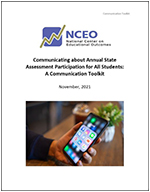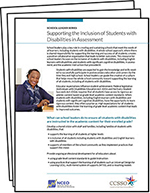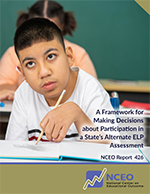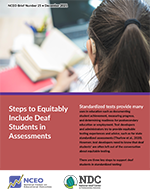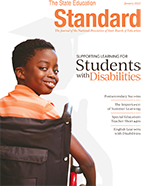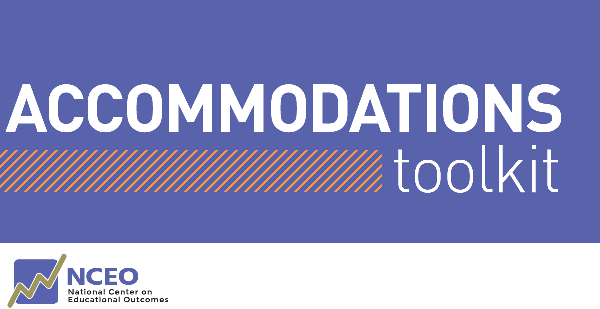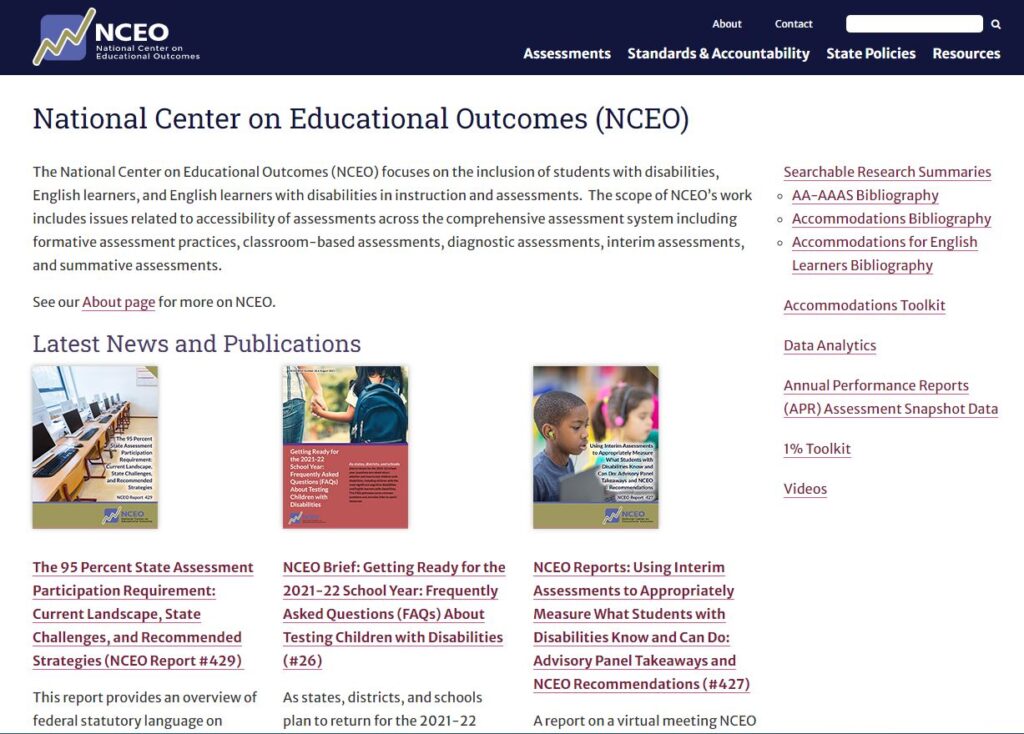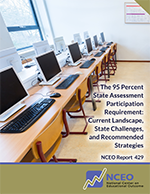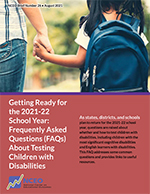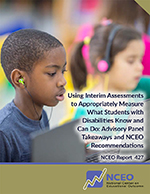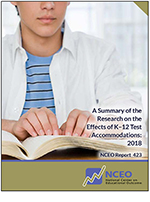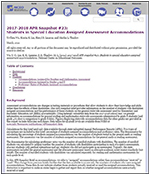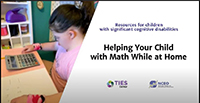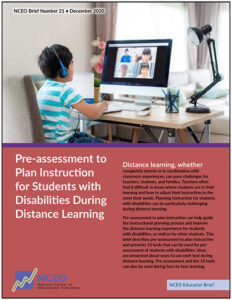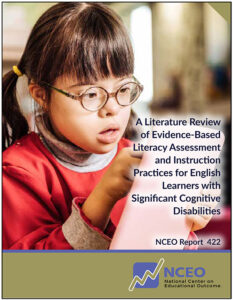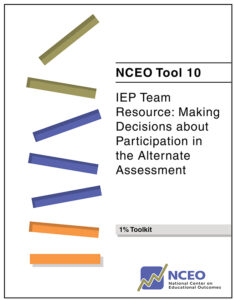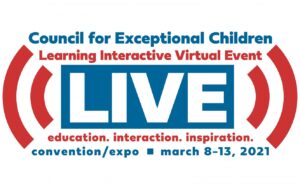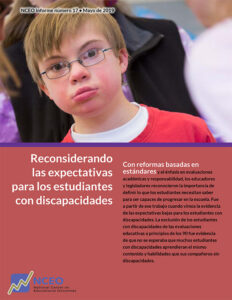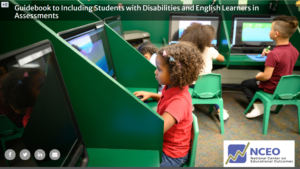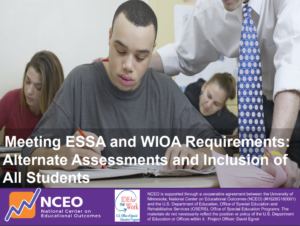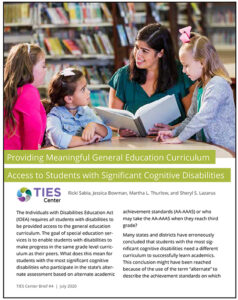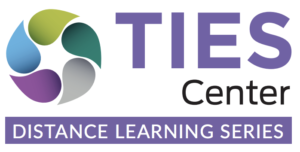Welcome
We are pleased to highlight a few of NCEO’s new products and activities in this newsletter. The year 2022 is just beginning, but already there is lots to share. In this issue, there is information about a participation communication toolkit that NCEO recently released. It contains customizable resources, sample social media posts, and other resources that can be used when communicating about why it is important for students to participate in state tests. This issue also highlights a new series for school leaders on including students with disabilities in assessments, as well as two new resources on the assessment of English learners with disabilities. Additionally, there is an article about including deaf students in assessments.
This issue includes information about an article that several NCEO staff wrote for the National Association of State Boards of Education (NASBE) on ensuring students with disabilities leave school ready to succeed, as well as information about how to register for a related webinar on improving postsecondary success for students with disabilities.
Finally, in this issue, we provide information on sessions at the annual conferences of the Council for Exceptional Children (CEC), the National Association for Bilingual Education (NABE), and National Council on Measurement in Education (NCME) that include NCEO staff.
– Sheryl Lazarus, NCEO Director
Participation Communications Toolkit
State test participation has benefits for students, their families, and their schools. NCEO recently developed a participation communications toolkit that provides customizable resources that state education agency staff, district and school administrators, and parent centers can use when communicating with educators, policymakers, families, and students about why it is so important that students participate in state assessments.
New School Leader Series
NCEO recently published a School Leader Series. This series of four briefs is designed to provide guidance to school leaders about the inclusion of students with disabilities in assessments in a quick and easy-to-read format.
New Resources on Assessment of English Learners with Disabilities
NCEO recently published two products on the assessment of English learners with disabilities. As states focus on educational equity issues, these documents provide suggestions for ensuring English learners with disabilities are appropriately included in state assessments.
Equitably Including Deaf Students in Assessments
The National Deaf Center on Postsecondary Education and NCEO recently co-published a brief titled, Steps to Equitably Include Deaf Students in Assessments (Brief #25). It describes three key steps to support deaf students in standardized testing. The Brief provides details about each of the steps and how to accomplish them.
Ensuring Students with Disabilities Leave School Ready to Succeed
Federal policies have attempted to ensure that students with disabilities are ready for post-secondary education and employment when they leave school, yet too often they lag behind their peers. NCEO’s Martha Thurlow, Kristin Liu, and Sheryl Lazarus recently had an article titled Ensuring Students with Disabilities Leave School Ready to Succeed published in the January, 2022 issue of The State Education Standard: The Journal of the National Association of State Boards of Education (NASBE). The entire issue focused on supporting learning for students with disabilities.
Upcoming NCEO Presentations (CEC, NABE, NCME)
NCEO staff will present at the annual conferences of the Council for Exceptional Children (CEC), the National Association for Bilingual Education (NABE), and National Council on Measurement in Education (NCME).
The Center is supported through a Cooperative Agreement (#H326G210002) with the Research to Practice Division, Office of Special Education Programs, U.S. Department of Education. The Center is affiliated with the Institute on Community Integration at the College of Education and Human Development, University of Minnesota. Consistent with EDGAR §75.62, the contents of this report were developed under the Cooperative Agreement from the U.S. Department of Education, but do not necessarily represent the policy or opinions of the U.S. Department of Education or Offices within it. Readers should not assume endorsement by the federal government.
Project Officer: David Egnor

